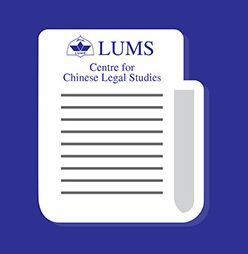Authors: Sikander A. Shah and Uzair J. Kayani
The COVID-19 pandemic, like all natural disasters, has engendered a period of unpredictability that has negatively impacted consumers world-wide. It has provided an opportunity for merchants of essential commodities to profit off of the calamity. While buyers are driven by the desire to stock up on vital supplies, sellers are tempted to increase prices to maximize their gains. This, in turn, means that resources are allocated to the highest paying individuals.
States have attempted to curb opportunistic behavior by promulgating anti-hoarding and price gouging legislations. In response to reports of health supplies and essential food items being hoarded amidst the outbreak, Pakistan has passed statutes such as the COVID-19 (Prevention of Hoarding) Ordinance 2020 and comparable provincial laws to ensure that no artificial scarcity leading to excessive prices is created.
Pakistan already had laws in place seeking to prevent profiteering through hoarding and price gouging. These laws, however, have proven unsuccessful in preventing anti-competitive practices and ensuring consumer protection during the pandemic. It is essential, therefore, to analyze why the existing legal regime failed to deter producers and sellers from such behavior.
From an economic perspective, rational sellers will choose to engage in unethical business practices only if the rewards of their actions outweigh the associated costs. This choice is influenced by four major factors: a) the possible financial gains from the violation; b) the likelihood of being apprehended; c) the intensity of punishment rendered; and d) exposure to other losses such as a loss of goodwill and brand repute amongst customers. Here, the costs incurred as a result of being caught should also be taken into account such as the forfeiture of income owing to incarceration, the cost of hiring a quality legal defense, and so on. This implies that, so far, the utility of rewards for those involved in hoarding in Pakistan has remained higher than the utility of costs.
In this regard, it is significant to distinguish between large-scale producers and small-scale sellers. The former can benefit greatly by creating artificial scarcity on a massive scale, while the profits earned by the latter from stockpiling would remain limited. It follows that hoarding giants would only be deterred if the likely sanctions, just like their profit margins, are much greater than those faced by individual shopkeepers. Even though, the recently passed anti-hoarding ordinances envisage a distinction in the quantum of fines imposed, based on the value of the articles seized, the term of imprisonment remains the same—a maximum of three years—for big and small dealers alike. We have already witnessed, with the earlier Price Control and Prevention of Profiteering and Hoarding Act 1977, that the prescription of imprisonment of up to three years for those convicted failed to engender the impact it was meant to. It would, thus, have been wiser for the new laws to introduce a stricter punishment regime.
The deterrent effect of such legislations, however, is not a stand-alone result of the law. It is dependent on external factors as well, such as the strength of the enforcing agencies. Thus, such violations can be effectually prevented only if the intensity of punishment is coupled with a certainty of punishment. Those with political clout, for instance, are more likely to get away with practices of hoarding. Additionally, in times of disaster, the businesses’ requirement to maintain steady supply, owing to the increased demand of essential goods, makes it harder to conduct thorough and effective checks. Jurists, meanwhile, have contended that the certainty of getting caught, rather than increasing the maximum sentence, is more likely to prevent crime. Legal regulation, therefore, must be followed by efficacious enforcement.
To determine what impact an article of legislation is likely to have, legislators must evaluate it in light of its deterrent effect. The resources and finances devoted towards law enforcement agencies must be increased to efficaciously counter an increase in the rate of anti-competitive practices. Failing to do so will further stretch the already burdened enforcement resources, creating hurdles in the pursuit of further complaints and necessitating the allotment of additional resources down the line regardless. Citizens must be incentivized to assist Deputy Commissioners and authorized officials by reporting suspected offences of hoarding. The whistleblower clauses enshrined in the recent anti-hoarding regulations should be highlighted for community awareness, and protection should be offered to individuals seeking to inform on such practices. A deterrent effect must be created to "tighten the noose" around hoarders seeking to inflate prices of essential items, by raising the costs associated with such practices to outweigh their benefits.
The authors are policy consultants for the project at the Centre for Chinese Legal Studies (CCLS), Shaikh Ahmad Hassan School of Law (SAHSOL), LUMS. This research was conducted by the CCLS and was supported by the Hanns Seidel Foundation (HSF) Pakistan. The opinions expressed in this article are those of the authors and do not reflect the official position of LUMS or HSF.
This article was originally published in Pakistan Today on the 15th of August, 2020 and can be accessed here.

